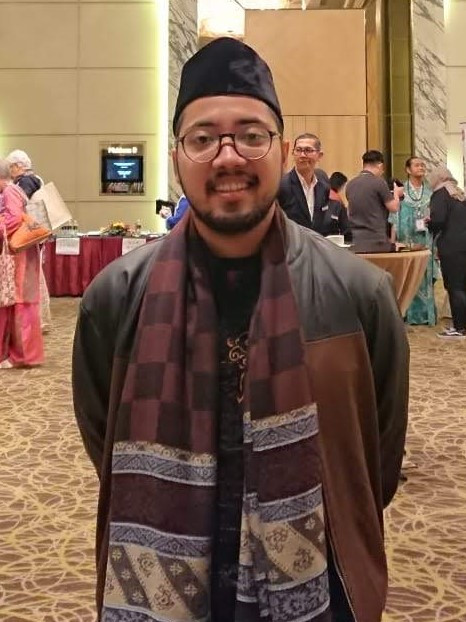Guys, interrupted: Indonesian trans men set their sights on more visibility
For better or worse, Indonesian trans men do not experience the same visibility as trans women. While some of them might live in the shadows and avoid backlash, several trans men decided that it was time for them to be more noticeable.
Change Size
 Helping others like him: Caesar, 30, founded several platforms with his friends, namely Transhition ID, Transmen Indonesia and Transmentalk to bring more visibility to trans men in Indonesia. (Personal archive/Courtesy of Caesar)
Helping others like him: Caesar, 30, founded several platforms with his friends, namely Transhition ID, Transmen Indonesia and Transmentalk to bring more visibility to trans men in Indonesia. (Personal archive/Courtesy of Caesar)
T
hirty-year-old Amar Alfikar already felt “odd” in the body he was assigned to as a kid. Growing up in an Islamic boarding school that was owned by his parents, Amar enjoyed the camaraderie of other boys - not girls. When he entered junior high school, Amar was told that he had to wear a headscarf.
“I felt like I had to wear a mask as a proper [Muslim girl] wearing a hijab. I had to suppress my anxiety, confusion, fear, and discomfort. It all became too unbearable to the point that I started inflicting harm on myself,” said Amar.
The self-harm episodes occurred until Amar entered college. At university, Amar began to familiarize himself more with diversity. He also became involved in interfaith discussions. In one discussion, an Islamic teacher told him that Allah did not see one’s gender identity or sexual orientation.
From there, Amar set out to find a psychologist who later confirmed that he was a trans man.
“It took me a while to find a psychologist who was trans friendly. I saw four psychologists and they were all transphobic before I met the right one,” he said.

The session with the psychologist helped Amar to build a foundation on his self-identity before finally coming out to his parents. He recalled that before he spilled the tea, all his clothes were already packed. Amar was sure he was going to be disowned since he came from a Muslim family.
Instead, his mother hugged him and told him that she loved him even more after he came clean. Amar found the acceptance to be truly heartwarming since he never felt close to his mother before.
“My mother even stood as a witness during a hearing for me to change my name. That was three years ago,” he said.
Amar now works as an activist and uses his social media platforms to promote more interfaith discussions. He works on projects to encourage local religious leaders to be more affirming toward queer communities, as well as building more safe spaces in religious communities.
Since coming out, Amar is no stranger to offensive comments from people. On social media, people would ask Amar whether his beard is fake or if he stands when goes to the toilet. He also felt that he had to prove his “manliness” since coming out as a trans man.
“It’s toxic masculinity and patriarchy,” said Amar, who added that people often found him odd, since he is a trans man and a feminist at the same time.
The struggle is real
Caesar, 30, who works as a copywriter for an advertising agency, said the biggest struggle that he experienced since he came out as a trans man was when he entered a new environment, especially the workplace and dating life.
“We can’t deny that almost all trans men were traditionally raised as women who are expected to be obedient, soft, polite and passive. For me, the impact is quite huge. I feel insecure and doubtful when facing challenges,” said Caesar.
Prior to his current company, Caesar worked at several places that were all LGBT-friendly. When he decided to branch out of his comfort zone, he was lucky to have found a company that would at least be open-minded about his identity.
Caesar, who dates women, said that in dating life, he is also selective because he does not want his identity to be invalidated.
Ardhana Rishvara, 32, who works as a graphic designer, illustrator, and mental health activist, said he did not feel any obstacles in his professional life. In fact, Ardhana, who preferred to be called Ardhan, said he had landed his dream job.

“The biggest struggle is dating life. Because I’m gay, I like men, and it’s rare to find a gay man who is into a trans man,” said Ardhan, who lives in Denpasar, Bali.
Ardhan also admitted that he would be annoyed whenever someone asked him about his dating preferences.
“People would ask me if I still like guys, why didn’t I just stay as a woman. I was like, dude, there’s a difference between gender identity and sexual orientation, you know,” he said.
Visibility
Although he has been out on social media for several years, Amar admitted that he felt invisible, even among LGBT people.
“Even in discussions and forums about transgender issues, [the speakers] are always trans women, not a single trans man,” he said, adding that he hoped that queer communities, NGOs, and LGBT allies would involve more trans men in promoting transgender rights.
Amar’s sentiments were echoed by Caesar who said that because of the lack of visibility, many trans men found it hard to discover their own identity. He added that since it was so difficult to find psychologists or medical professionals who were open-minded toward LGBT people in general, it was difficult to find the right information.

“As a result, many trans men feel alone,” he said.
Caesar and several other trans men decided to create a social media platform so that trans men could find each other and get more information about related issues. These platforms include Transhition ID, Transmen Indonesia and Transmentalk.
Even among LGBT communities, Caesar felt that the voices of trans men were not perceived as priorities because of the limited number of visible trans men.
“Even when we go to airports or banks, based on experience, we need to explain [to the officers] at least 20 minutes that we are transgender people. Trans women can just say their identity and be done with it. This is because of the lack of visibility,” he said.
Ardhan agreed with Caesar, adding that it was important for people to understand that transgender people, including trans men, exist among them.
“This is also important for younger trans men so that they can find their own people. For example, the platform Trans Men Talk Indonesia allows younger trans men to contact us and ask how they can get into transition safely,” he said.
Not all trans men agree with being more visible, however. Kevin, 30, a freelance photographer and videographer based in Ubud, Bali, said being seen or being visible did not always mean good.
“The media tend to give us a narrow point of view, selling stories that are unethical and bring misunderstanding about transgender people,” he said.
For now, Kevin is happy enough if nobody calls him by his deadname. Deadnaming is using the former name of a transgender or non-binary person without the person's consent.
“If they keep calling me by my deadname, I might as well call them dogs or cockroaches, because I believe that is their name,” he said.
Caesar admitted that there is a small number of transgender people who do not have problems with their former name.
“But it’s better to ask a trans person what name they want to be referred to by,” he said.









